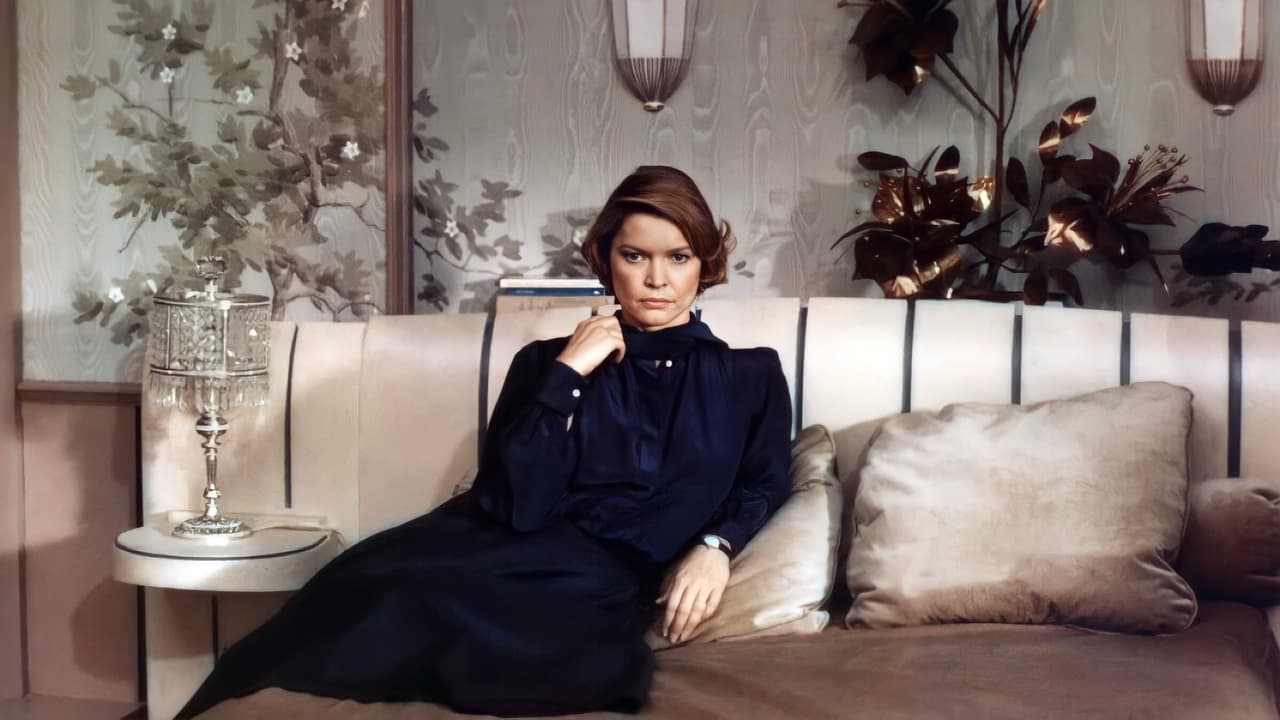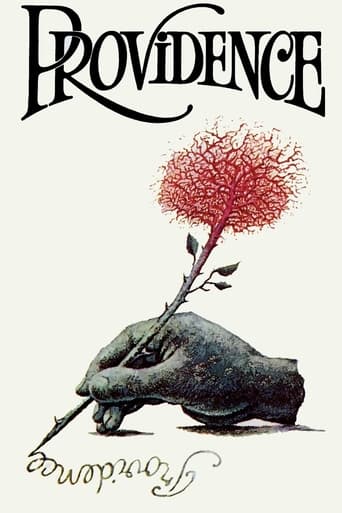Ava-Grace Willis
Story: It's very simple but honestly that is fine.
Portia Hilton
Blistering performances.
Taha Avalos
The best films of this genre always show a path and provide a takeaway for being a better person.
Payno
I think this is a new genre that they're all sort of working their way through it and haven't got all the kinks worked out yet but it's a genre that works for me.
SixtusXLIV
Since so many good comments have been written here, mostly on the psychological side of the characters, and they are all excellent, I decided to comment upon a very present entity and that is WINE.Notice that, until the last scene, everybody drinks white, mostly CHABLIS, an acid one. But on that last scene Resnais shifts to RED. It is no accident, it has in my modest opinion, a way that illustrates a very fundamental change in the feelings that occurred in that lunch.Criticism and over-analysis, ever present till that event, give way to peaceful acceptance of the characters by the father, Without hypocrite sensibility, that he refuses, but with warmth and tolerance.Well, I do believe, by some 55 years of experience, that white wine (dry, European style) makes one restless and sometimes bitter.Red wine makes one more relaxed and happy.I do not know which kind of wine Resnais prefers, but since he is a Breton I would not be surprised, that it is WHITE. Maybe that is the reason why His movies are so difficult to decode. They are also some of the most magnificent works of cinematic art..
kris-oak
Old, severely ill with with a piece of writers block and another piece of insomnia, John Gielgods protagonist one night, dreams up broken pieces of a story based in his own subconscious and emotional relationships to his family and friends.And this night, racked with the pains of his illness and his guilt over a life spent living, it all combines into a claustrophobical nightmare. Or is it the truth ? Resnais in this film presents us with with a very human condition; the possibility that we all construct the story of our lives to a larger extent, from pieces of the subconscious that we re not aware of or aren't just fit to handle objectively.Beautifully shot, with John Gielgod as a master actor, supported by Dirk Bogarde and others, this movie was, I think, my first Resnais movie; it sticks with me in the passionate way of straight emotions like love hate or whatever you desire, combined with the small faults that makes us all human; unable not to come back to again and again.It ends beautifully with a kind of a promise about the human soul.
dimbda
I saw this film at release and have seen it several times since and this motion picture still holds up, a seemingly complex story that unravels steadilythroughout the film. Resnais uses every dramatic device available to tell what becomes a moving and tender portrait, not least visual puns, particularly asequence where Dirk Bogarde drives across "town", in which a very simplemontage predates digital morphing as seen in current commercials, smoothly linked through the activity of the character. All good Resnais films include an examination of the minds of his characters and this is a superb twist-and-turn reality that involves us completely. The acting of course is flawless and includes a wonderful pairing of the great Elaine Stritch and Ellen Burstyn. David Warner, a personal favorite, is actually given the opportunity to act and steps up to the plate and compliments Dirk Bogarde's cool and wooden portrait. I regularly look for this release on DVD and am consistently disappointed. Could someonepublish it soon?
Howard Schumann
How often do we awake from our dreams in a sweat, not knowing what is real and what is illusion? Especially if we are feverish, our dreams can turn close friends or family members into ogres and hateful creatures (or possibly werewolves) who are bent on our destruction. Such is the case with novelist Clive Langham (John Gielgud), a dying 78 year-old writer who is working on his final novel in the playfully bizarre 1977 English language film, Providence, by Alain Resnais (Hiroshima Mon Amour, Last Year at Marienbad, Muriel). The film depicts how physical and mental anguish can distort our view of reality. A poetic screenplay by playwright David Mercer and powerful performances by John Gielgud, Ellen Burstyn, Dirk Bogarde, Elaine Strich, and David Warner provide strong support.Clive does not go gentle into that good night. During one horrific night, all the pain of his life and disturbing family relationships boil to the surface. In the novel being played out in the author's mind, his family members, sons Claude (Dirk Bogarde) and Kevin (David Warner), and Claude's wife Sonia (Ellen Burstyn), mysteriously become the main protagonists, assuming roles as prosecutors and defendants, feuding spouses, and extra-marital lovers. As Clive goes deeper into the maelstrom, images become more and more hallucinatory. The denouement is witty, baffling, irritating, and then finally transcendent. To say that the ending is a surprise is a major understatement.Providence may exasperate you but, if you have patience, it can be a richly rewarding experience. As with all thought provoking and multi-layered films, multiple viewing may be required for full appreciation. Providence was voted the greatest film of the '70s by an international jury of critics and, at Telluride, Norman Mailer called it "the greatest film ever made on the creative process".

